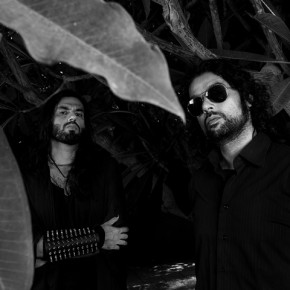When attempting to assess the work of the Slovenian philosopher Slavoj Žižek, one is tempted to do as Richard Bernstein did in a piece about Habermas in the 1980s and write two columns: one showing what a sympathetic, the other what an unsympathetic critic would say.
No figure in modern intellectual life (or at least in the rarified realms of post-idealist philosophy) elicits such divisive responses. For some, Žižek is a perceptive gadfly, developing a unique perspective on modern life and politics mediated by engagement with the works of Schelling, Hegel, Marx, Freud, and Lacan (to name only the most major figures).
For others, especially (but by no means limited to) those operating in the analytic tradition, Žižek is simply a charlatan spinning out meaningless word games of the kind that Alan Sokal is supposed to have deflated twenty years ago. As is so often the case, the truth is somewhere in the middle. Or, to take a more Žižekian approach, two apparently mutually exclusive truths can be simultaneously maintained via the parallax generated by these two sightlines (the serious and the dismissive).
Žižek’s writings form a dynamic whole with the numerous talks that he gives, where subtle philosophical analysis swirls hypotaxically with asides about film, strange anecdotes, and obscene humor. His speaking presence gives this a particularly peculiar twist: his heavily accented yet crystal clear diction, his slyly self-deprecating humor, and the range of ticks and movements that give his presentations a quality reminiscent of a Van de Graaff generator. One might be tempted to suggest that Žižek suffers from obsessive compulsive disorder.
Perhaps it would be closer to the truth (and consonant with his Lacanian analytical program) to say that, taken as a whole, comprising not only his personal and speaking personae and his voluminous writings, Žižek is simply the locus on which obsessive compulsions are inscribed. It’s not that there is a disorder distorting his personality. Without it, Žižek’s personality itself is inconceivable.
His latest book (something like his 85th by my count) bears the title Absolute Recoil: Towards a New Foundation for Dialectical Materialism, and was published by Verso in October of last year. In typically Žižekian fashion, the title frames the recondite and problematic nature of this book. The title phrase (“absolute recoil” or “absoluter Gegenstoß” in the original German) is a reference to a term employed exactly one time by Hegel in The Science of Logic. In another place, Žižek translates as “counterpunch” and which he evinces to illustrate the contradictory manner (in both Hegel’s thought and his own) in which the withdrawal from one pole of a dichotomy toward its opposite paradoxically calls the original element into being. Thus, Žižek quotes Hegel (one of latter’s stereotypically tortured passages) asserting that,
“The reflected determination, in falling to the ground, acquires its true meaning, namely, to be within itself the absolute recoil upon itself, that is to say, the positedness that belongs to essence is only sublated positedness, and conversely, only self-sublating positedness is the positedness of essence. Essence, in determining itself as ground, is determined as the non-determined; its determining is only the sublating of its being determined. Essence, in being determined thus as self-sublating, has not proceeded from another, but is, in its negativity, self-identical essence.”
The significance of this passage is greater than simply its position in the Hegelian architecture of dynamically recombinant concepts. Rather, it is in structural terms a model of the Žižekian argumentative approach. Those with even a passing familiarity with Žižek’s oeuvre will be well aware of his fondness for (verging on obsession with) paradox and contradiction. To take only one example, whose structure is illustrative of literally hundreds of others, Žižek argues toward the end of Absolute Recoil that, on Kant’s account, freedom is not the highest achievement of subjectivity, but in fact the source of a trauma that has to be papered over with attribution of spurious, apparently pathological determinants.
“For Kant, freedom is real in the most radical (Lacanian even) sense: freedom is an inexplicable, ‘irrational,’ unaccountable ‘fact of reason,’ a Real which disturbs our notion of (phenomenal) spatio-temporal reality as governed by natural laws. It is for this reason that our experience of freedom is properly traumatic. In other words, in Kantian ethics, the true tension is not between the subject’s idea that he is acting only for the sake of duty, and the hidden fact that there was indeed some pathological motivation at work (vulgar psychoanalysis). The true tension is exactly the opposite one: the free act in its abyss is unbearable, traumatic, so that when we accomplish an act out of freedom, and in order to be able to sustain it, we experience it as being conditioned by some pathological motivation.”
At a broader level, Žižek’s project is to explore the implications of the externally generated subjectivity conditioned by the influence of the Lacanian “big Other”. Viewed in this light, Žižek’s reference to Hegel in the title of the book is consonant with his overarching project of parsing the ways in which the real is a retroactive projection onto the nullity of any particular now.
Žižek’s subtitle lays out an analytical agenda, intriguing in conception, maddening in execution. As one of the few remaining unabashed Marxists in Western public life, Žižek would seem to have a powerful interest in taking as his brief the reconfiguration of the basic ontological category of the Marxist analytical framework. True to form, Žižek romps gleefully through various modern varieties of materialism, giving short shrift to naïve, scientific versions, while engaging more thoroughly (if no less critically) with the so-called “new materialism of Gilles Deleuze and the vitalist materialism of Jane Bennett.
True to his Hegelian roots, the central theme in Žižek’s approach is nothing, although he employs it in a rather more varied way than Hegel did. In part his line is a carryover from Žižek’s last major foray into Hegelianism, 2012’s Less Than Nothing: Hegel and the Shadow of Dialectical Materialism. Where Hegel begins his conceptual architecture with Being, Žižek goes in search of an even more primordial moment in search of a means of characterizing the ontogenesis of the extant. In the service of this project, Žižek marshals an impressive array of intellectual props, from the idealism of Schelling to the work of Alain Badiou, and from Buddhist thought to quantum mechanics.
Yet, as is so maddeningly often the case with Žižek’s work, the positive content of his analysis must be triangulated from a number of disparate argumentative projections. At several points, Žižek sites approvingly Pascal’s instruction to those wishing to find a way to God that if they pray earnestly (i.e. manifest the outward signs of faith) that true faith will eventually arise within. He also cites the intriguing chapter in Kant’s anthropology in which the latter argued that one important step toward human goodness is acting as if one is already good, sort of Kantian version of “fake it till you make it.” Is the conclusion that one should draw, then, that engagement with material life at a superficial level will ultimately allow the subject access to a deeper level of criticism? This seems consonant with the problems of the thematizing subject arising from its external, reflexive mode of generation.
At a deeper level this also appears to connect up with Žižek’s subsequent argumentation about the generation of extants out of nothingness. But even given a series of examples it remains unclear exactly how this happens. Rather we are in a position to have knowledge about it in retrospective fashion. This idea has a notable history in modern philosophy, from Hegel’s comments about the owl of Minerva in the introduction to his Philosophy of Right to Ernst Bloch’s darkness of the lived moment in The Principle of Hope. Still, Žižek seems to be aiming at something more essential here and his failure to connect the dots, or at least to signpost effectively, leaves the reader with a difficult task in understanding the argumentative line being pursued.
By the end of the book, Žižek has found his way to the work of Democritean and Epicurean atomism, and specifically the appropriation of this line of thought in the early work of Karl Marx. In Marx’s doctoral thesis he contrasted the atomist theories of Democritus and Epicurus, coming out on the side of the latter because of the element of freedom that atomic swerve inscribed in the structure of the world. Žižek takes up this line of approach, taking as his roadmap a very suggestive article on the topic by another Slovenian philosopher Mladen Dolar (“The Atom and the Void – From Democritus to Lacan”). As an aside, it is worth mentioning that the Dolar article is quite fascinating and certainly written in a way that is easier to understand than Žižek, although admittedly that is a decidedly low bar. In any case, Žižek (and Dolar) follow Marx’s trajectory, although they skip over the Epicurean swerve in favor of its subsequent appropriation by Lucretius in the concept of the clinamen.
Pursued through Hegelian phenomenology and up through the works of Badiou and Deleuze, the agenda here is not so much freedom as it is the concept of a dynamic, generative unity between being and non-being. Fascinating as this line of analysis is, the connection between this and dialectical materialism remains implicit and rather sketchy. One gets the impression that the point is to inscribe a dynamic concept of matter in to the materialist foundations of Marxist dialectics, thus giving them a foundation consonant with the dynamism of the other elements of the Marxist project. But this is a conclusion that must be read into the text, rather than being immediately obvious (much less explicitly asserted).
Žižek is generally at his best when he has an analytical subject area to unify his analyses. When it works, as in his expositions of film and fiction (Looking Awry, Everything You Always Wanted to Know About Lacan (But Were Afraid to Ask Hitchcock)) or his analyses of immediate political conditions (The Year of Dreaming Dangerously, In Defense of Lost Causes) Žižek’s riffs can be intense and acute, searching out paradoxes and dissecting in a way that clarifies. In his more theoretical undertakings (Mythology, Madness and Laughter: Subjectivity in German Idealism, Parallax View) Žižek often seems to get lost in his own combination of erudition and clever anecdotes.
While the latter variety of his writings can be very enjoyable to read, they often follow a logic all Žižek’s own, opaque to all but the subtlest of his readers. Even in these cases there is much to be gained from engagement with Žižek’s texts. He is an incisive reader, especially of the tradition of German idealism. The fact that so eminent a scholar of Hegel’s work as Robert Pippen took the time to review Less Than Nothing, which ran to more than 1000 pages densely argued pages, is indicative of the substantive nature of his work.
In the introduction to his translation of Adorno’s Aesthetic Theory, philosopher Robert Hullot-Kentor described it as a book that was “almost too interesting to read.” This is a comment that could easily be ascribed to many of Žižek’s texts, and to this one no less than the others. Žižek can (and clearly love to) be intensely iconoclastic, reveling in the paradoxes that underlie what he once called (with a nod to Donald Rumsfeld) the “known knowns” of modern political and social ideas.
Still, for a guy who is often styled as the last active Leninist, Žižek is signally lacking in intellectual discipline. Absolute Recoil is a perfect illustration of this. Žižek runs through modern varieties of materialism like bull through a china shop. While the critical consequences are compelling, the new foundation for historical materialism is hard to discern among the wreckage.
Photographs courtesy of Joel Schalit.








